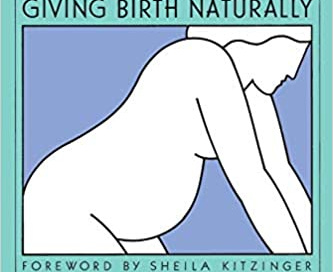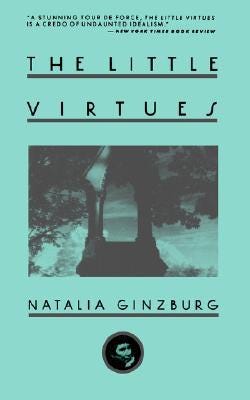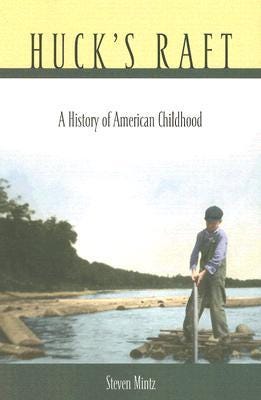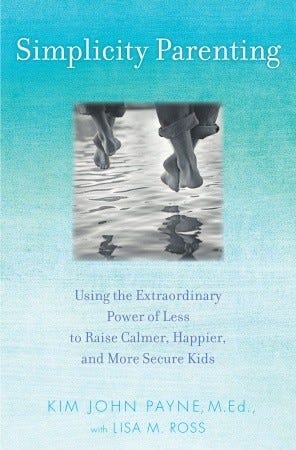I read about 70 books about birth and babies while pregnant, even though everyone told me not to read anything.
These people, clearly, did not know me well. Telling me not to read something is a surefire way to move a book to the top of my reading list. Furthermore, what a wild season of life to tell me not to read things. Why would I not read about one of the most significant undertakings of my moderately young life?
Having done this all of this reading and heeded none of these warnings, I now understand the intent behind this caution: There is a TON of fear-mongering around pregnancy and birth, and I am glad I stayed away from that (as best I could). In sum, womenfolk: Don’t let people scare you about pregnancy and birth. (Also, don’t let health care providers patronize you.)
With that caveat, having read about 60 books, here are the 33 that are worth your time and unlikely to cause paroxysms of fear and stress, if there is a wee babe on the horizon.
Best 8 books on birth and pregnancy
Active Birth, Janet Balaskas. Clearly explained advice on how to move well while laboring. It is an older book from the UK, and not as widely read or mentioned in these parts, but I’m so glad I found a used copy. Excellent advice, with helpful images and descriptions.
Ina May’s Guide to Childbirth, Ina May Gaskin. Read it for the happy birth stories! Even if you don’t go the hippie/drug-free route, it’s just lovely to read about births that are joyful occasions—and to discover all of the manifold, various, and beautiful ways that babies come into the world. Ina May will help you relax. This is the main thing that I wanted someone to do for me, as a first-timer contemplating birth: Someone help me relax. Ina May is that saintly someone.
Expecting Better, Emily Oster. This rational book was one of the only things that helped me calm down during my anxiety-ridden first trimester. Highly recommended.
Real Food for Pregnancy, Lily Nichols. Comprehensive and somewhat urgent; I wish I had read it at the start of my pregnancy instead of toward the end! Nichols presents an evidence-based approach to nutrition for pregnant women, avoiding much of the tired fear-mongering that’s present in so much common advice for American women (e.g., paranoia over raw eggs, soft cheese, seafood, etc.) and instead prioritizing health through whole, natural foods (with some interesting additions, at least for American eaters, like her high praise for organ meats, bone broth, eggs, and seaweed).
Nurture, Erica Chidi Cohen. Read this instead of the dreadful What to Expect. This is the calming, clear, modern overview of all pregnancy and birth-related matters that you want to leaf through and use as a reference throughout your nine months.
Birth Matters, Ina May Gaskin. More of a manifesto, and likely a contributing factor into why I decided to have home births (in 2019 and 2021), but it’s a holistic, woman-and-baby-centric text, decrying much of the institutional, overly medicalized trends in American obstetrics.
Pregnancy, Childbirth and the Newborn, Penny Simkin. Another great, clear, non-hysterical guide to these nine months and the bleary newborn months that follow.
Mindful Birthing, Nancy Bardacke. Admittedly, I don’t think I used any of these meditative practices while giving birth, but they sounded so nice! A more mentally strong woman may derive more active benefit from these practices. Still, I enjoyed knowing about the power of the brain over sensations of pain.
Best 8 books on motherhood/postpartum life
The First Forty Days, Heng Ou. A beautiful book that encourages women to follow the Chinese tradition of resting and staying in for 40 days after birth: eating rich, nourishing foods; resting; snuggling with your baby; and being pampered. A much wiser and better approach to the postpartum period than the typical American Instagram mom, who likes to brag about how she ran a bunch of errands immediately after giving birth.
Ina May’s Guide to Breastfeeding, Ina May Gaskin. I found this to be so much better and less judgmental than the La Leche League’s Womanly Art of Breastfeeding, which assumes that all women are stay-at-home moms who wouldn’t dare leave their baby alone for even a moment.
Operating Instructions, Anne Lamott. Wry, sarcastic, and heartwarming memoir of raising a baby boy as a single mom.
The Little Virtues, Natalia Ginzburg. Beautiful little essays from the Italian-Jewish writer Natalia Ginzburg, who is wise and elegant and comforting all at once.
Little Labors, Rivka Galchen. A perfect little book to read in those bleary postpartum days, because it’s charming and episodic. You can easily pick it up between feeds. Galchen’s observations of motherhood are the perfect blend of sweet without being sentimental.
Daybook, Anne Truitt. The diary of a talented American sculptor, who finds time to care for her children while also creating art. Encouraging to those of us who have other interests outside of child-rearing.
Of Woman Born, Adrienne Rich. A strident series of essays from my favorite second-wave feminist.
And Now We Have Everything, Meaghan O’Connell. Another humorous memoir that would be a fun, lighthearted book after having a baby of your own.
*There may be some great books about fatherhood, but I didn’t read any! Dads, feel free to chime in.
Best 7 books on the history and culture of parenting
Huck’s Raft: A History of American Childhood, Steven Mintz. Reading this history of how Americans have defined childhood was so helpful and orienting, especially when I contemplated where many of my deeply held beliefs about parenting came from.
Act Natural: A Cultural History of Misadventures in Parenting, Jennifer Traig. Delightful. Jennifer Traig presents a lighthearted—and yet thoroughly researched—account of parenting through the ages. Smart and sarcastic and informative.
The Parents We Mean to Be: How Well-Intentioned Adults Undermine Children’s Moral and Emotional Development, Richard Weissbourd. A Harvard psychology professor’s perspective on how American parents are messing up their kids by trying to be their friends.
Overwhelmed: Work, Love, and Play When No One Has the Time, Brigid Schulte. Not uplifting! Brigid Schulte tackles the consuming problem of living in a society that does not support mothers and leaves them feeling overwhelmed, all day, every day.
All Joy and No Fun: The Paradox of Modern Parenthood, Jennifer Senior. The most compelling argument, which Senior cites from an American historian: We have no parenting folkways, and so we are always muddling around, trying every trend and suggestion, when it comes to childrearing.
To the End of June, Cris Beam. A chastening account of the dire straits of the U.S. foster care system.
The Smartest Kids in the World: And How They Got That Way, Amanda Ripley. A quick and thought-provoking book that looks closely at South Korea and Finland’s public schools and considers why U.S. schools lag so far behind.
Best 10 books on baby raising
Simplicity Parenting: Using the Extraordinary Power of Less to Raise Calmer, Happier, and More Secure Kids, Kim John Payne. Sage, calm, and inspiring. We still have so much to learn about raising little people, but this book has served as a beacon. I plan to return to it over and over again, like a liturgy, in the hopes that it will continue to inform my parenting.
Good Night, Sleep Tight: The Sleep Lady’s Gentle Guide to Helping Your Child Go to Sleep, Stay Asleep, and Wake Up Happy, Kim West. The title says it all. (Given to us by our life-changing doula!)
Cribsheet: A Data-Driven Guide to Better, More Relaxed Parenting, from Birth to Preschool, Emily Oster. Calming and reassuring, much like Expecting Better. Emily Oster puts many early parenting fears to rest with her clear-headed analysis. (I also love her Substack ParentData, which I read religiously.)
Grow Wild: The Whole-Child, Whole-Family, Nature-Rich Guide to Moving More, Katy Bowman. Our movement goals for our family in a nutshell! Also introduced to Katy Bowman by our aforementioned doula. Very inspiring and important.
Bringing Up Bebe, Pamela Druckerman. People have lots of opinions on this book, but I think it’s just great parenting advice, from start to finish. Non, je ne regrette rien!
Montessori from the Start, Paula Polk Lillard. I really appreciated this book in the early days of babyhood, and it encouraged me to make many different decisions about how we interacted with our firstborn and set up our home for him. There’s also a lot of overlap with the Montessori baby-rearing philosophy and the natural movement ideas from Bowman, as mentioned above. Our second-born also gets the benefit of being looked after in a bonafide Montessori classroom, which is so lovely.
Last Child in the Woods, Richard Louv. Terrifying and extremely motivating book that urges you to get your kids outside.
The Enchanted Hour: The Miraculous Power of Reading Aloud in the Age of Distraction, Meghan Cox Gurdon. I mean, of course I was going to read aloud to my babies, but this book made me even more firm in my dedication to the practice.
Brain Rules for Baby, John Medina. Helpful, readable survey of what we know about how children’s brains develop and how we can help them flourish. Medina confirms research I’ve encountered elsewhere (e.g., have conversations with your infant; don’t tell your kid that she’s smart but rather that she worked hard; the best parenting style combines clear boundaries with gentle, consistent discipline, etc.) The book is broader than the title suggests and also offers practical, compassionate advice on how to fortify your marriage, your sex life, and your general sanity as you embark on parenthood.
Baby-Led Weaning, Tracey Murkett and Gil Rapley. Instead of pureed baby food and rice cereal, we followed this method of giving babies real, whole food to start with—and honestly, it’s not really a “method,” because it’s what parents always did until companies invented baby food. It worked so well with Moses, and he’s a great eater at 2.5. Fingers crossed that this method will also work with Felix.
What am I missing? What have you read and loved on the subject of bringing babies into the world?






